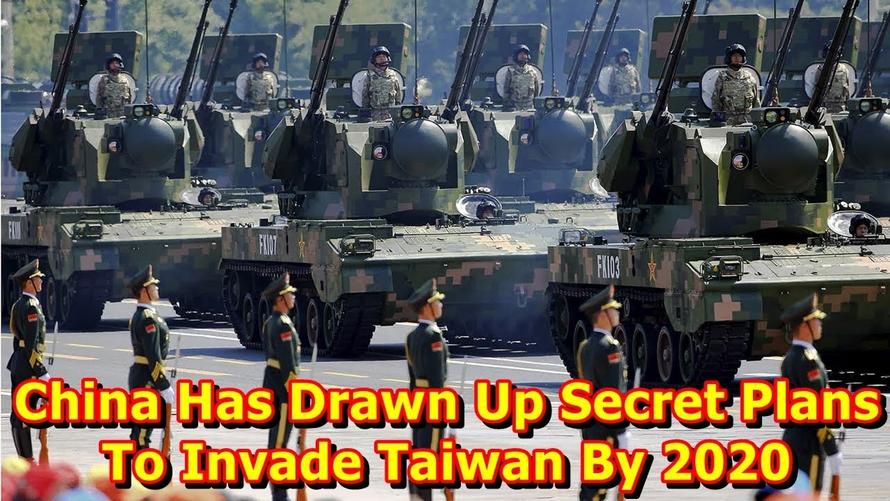
New Arms Sales Send the Wrong Signal on Taiwan
A. Trevor Thrall, Jordan B. Cohen, and Michael Klare / Defense News
(August 18, 2021) — The Biden administration recently approved its first arms sale to Taiwan for $750 million worth of howitzers and high-tech munitions kits. Proponents incorrectly argue that this sale will enhance stability in the region by sending a strong signal to China of America’s commitment to Taiwan’s security and by complicating any Chinese plans for an invasion of the island. In fact, the sale will accomplish nothing of the sort. To avoid enflaming tensions in the Taiwan Strait, the US needs to halt sales of weapons to Taiwan.
This sale will not allow Taiwan to better defend itself in any clash with China. It will, however, tell Taiwan that it’s OK to keep passing the buck to the United States for its defense. Moreover, a new sale of arms at this time is sure to inflame tensions between Beijing and Washington, increasing the risk of conflict and making it more difficult to make progress on issues of mutual concern, such as climate change, trade and nuclear nonproliferation.
No matter how many tanks, planes, missiles or howitzers Taiwan buys from the United States, few experts seriously believe that Taiwan is capable of defending itself on its own. Though a Chinese invasion of Taiwan would be costly, absent a war between China and the US, Taiwan would surely succumb.
Beyond its obvious manpower advantages, China also enjoys overwhelming air and naval superiority that US arms sales alone cannot reverse. China can blockade the island nation, airlift full-scale battle tanks onto the island and overpower Taiwan’s air defense systems. A few more guns, missiles and planes cannot change this.
Despite inaccurate claims that weapons are helping Taiwan become capable of defending itself, decades of American arms sales and reassurances have convinced Taiwanese leaders that the United States is ultimately responsible for Taiwan’s security. Taiwan’s defense spending has remained stuck at about 2 percent of its gross domestic product for years, a great deal of which it has spent on high-tech American weapons that will be of little value in case of a war.
According to a report published by George Mason University for which the authors interviewed Taiwanese military officials, senior lawmakers, elected leaders, former government officials and defense scholars, the US arms sales let “China know America would intervene on our behalf in a conflict.”
In short, when it buys American weapons, Taiwan is simply making insurance payments to guarantee American intervention in response to a Chinese invasion.
But while arms sales may have reassured Taiwan of ultimate US reassurance, they have also angered and alienated Beijing. After the United States recognized mainland China in 1979, it pledged to refrain from selling the Taiwanese offensive weaponry. But advanced fighter jets, missiles and planes are hardly purely defensive. Ironically, President Joe Biden used to understand this. In 1999, then-Sen. Biden stated that mandating arms sales to Taiwan would “be the equivalent of waving a red cape in front of Beijing.”

Part of the propaganda campaign to caste China as the aggressor.
China’s concern over these increasingly sophisticated weapons sales is understandable. From President Barack Obama’s 2011 “pivot to Asia” to President Donald Trump’s trade war, American concerns over a rising China have clearly been growing. In addition to selling Taiwan increasingly sophisticated weaponry, the Pentagon is deploying additional ships and planes in the areas surrounding China. Not surprisingly, Chinese leaders worry that the US and its allies are reviving the Cold War strategy of encircling their adversaries.
Attempts to deter China with an enhanced US military presence and arms sales to Taiwan are having the opposite effect. China’s defense budget has doubled in the 10 years since Obama announced the pivot. China is also matching increased US air and naval deployments with more aggressive maneuvers of its own. Over the summer, China flew record numbers of warplanes through Taiwan-controlled airspace. And in response to this latest sale, China once again declared it would take countermeasures.
Greater American military involvement and arms sales in the region raises the risk of a conflict breaking out over Taiwan that drags the United States into a war with China — a war that would surely result in widespread death and destruction on all sides. Taiwan is in an unenviable position, but defending Taiwan at the risk of war with China is a bad gamble for both Taipei and Washington to take, especially as Taiwan would almost certainly be reduced to cinders in the process.
Provoking China via arms sales also narrows the already constricted space in which the world’s most powerful nations can make progress on international trade, climate change and other global concerns. Both US and Taiwanese security would be best served in a world where the US and China avoided provocative military actions and sought openings for cooperation on issues of mutual benefit.
A. Trevor Thrall is a senior fellow at the Cato Institute and an associate professor at the Schar School of Policy and Government at George Mason University, where Jordan B. Cohen is a Ph.D. candidate. Michael Klare is professor emeritus of peace and world security studies at Hampshire College and is a senior visiting fellow at the Arms Control Association.
Posted in accordance with Title 17, Section 107, US Code, for noncommercial, educational purposes.